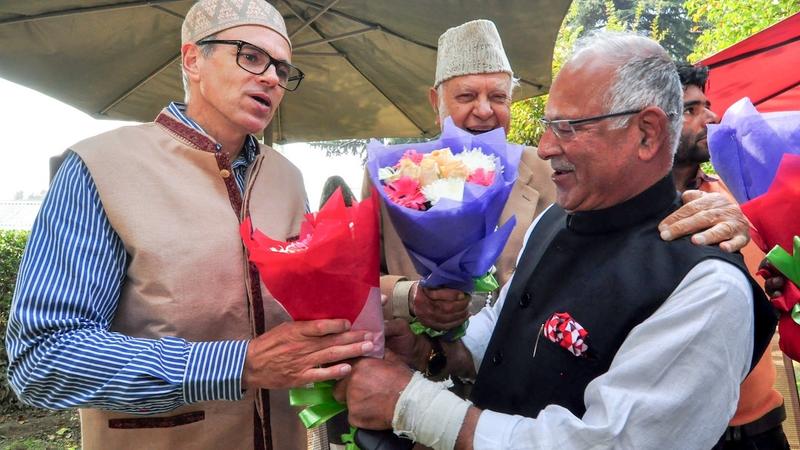Published 19:54 IST, October 9th 2024
Will J&K Statehood Change Status Of Assembly? What Legal Experts Say
BJP dominated the Jammu region, winning 29 seats while National Conference won 42 seats in Kashmir. Stay tuned with Republic for latest election updates.

New Delhi: The restoration of statehood from the status of union territory (UT) in Jammu and Kashmir (J&K) by the Centre in future will not affect the status of new legislative assembly, legal experts said on Wednesday.
In response to a query over the impact on the newly-elected J&K legislative assembly if the Centre decided to restore statehood, senior lawyer and constitutional law expert Rakesh Dwivedi opined it will not be necessary to dissolve the assembly.
Senior advocate Gopal Sankaranarayanan echoed similar sentiments and said restoration of statehood will not make any difference as the Legislative Assembly had already been constituted.
Their views have come amid a growing clamour for restoration of the J&K's statehood, which was one of the major poll planks of the Jammu and Kashmir National Conference, which secured majority seats in the 90-member assembly on October 9.
A look at Jammu-Kashmir's Assembly election results
The National Conference- Congress combine pulled off a comprehensive victory in the maiden elections in J&K following the abrogation of Article 370 in 2019.
"It will not be necessary to dissolve the Legislative Assembly. It will continue to function as state Assembly. A parliamentary law amending the existing one made after abrogation of Article 370 would suffice. Even if two states of Jammu and Kashmir are created, the procedure would be a State Reorganisation Act under Articles 3 and 4 of the Constitution," added Dwivedi.
On December 11, 2023, the Supreme Court unanimously upheld the 2019 revocation of Article 370 of the Constitution that gave special status to the erstwhile state of Jammu and Kashmir even as it ordered assembly elections there by September 2024 and the restoration of statehood "at the earliest".
Penning the verdict, Chief Justice of India DY Chandrachud had noted Solicitor General Tushar Mehta's submission that the Centre would restore the statehood and the UT status was temporary.
The apex court had said that restoration of statehood shall take place at the earliest and as soon as possible.
Earlier this week an application was filed in the top court seeking directions to the Centre for restoration of statehood to Jammu and Kashmir within two months.
Updated 19:54 IST, October 9th 2024




